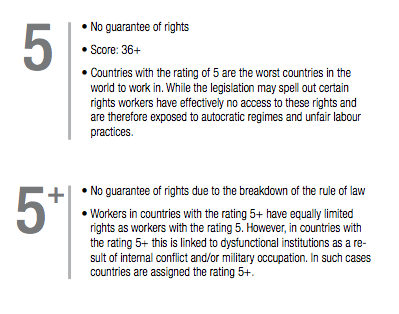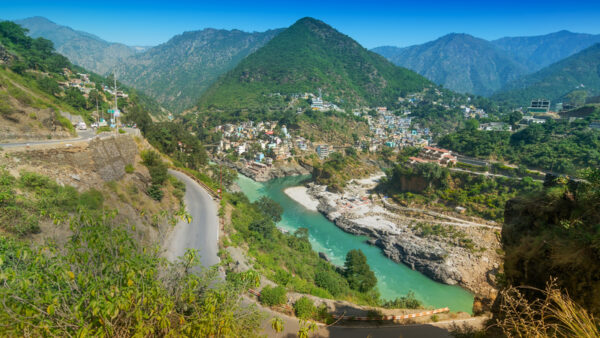The International Trade Union Confederation (ITUC) has published a report that ranks countries according to how well they protect the rights of workers. The Global Rights Index gives each country in the world a score out of five, with zero designating a country in which labour rights are sacrosanct and five a country with no protections at all. Â
Twenty-four countries were given a ranking of five, including China, Egypt, Greece, Nigeria, Saudi Arabia, the UAE and Qatar. Among these, Qatar has come under scrutiny for the high death toll among immigrant workers, and the lack of both job security and labour mobility. The Qatari government recently promised to reform labour laws and base them on a conventional contract system.
The report comments that countries with the rating of five are the worst countries in the world to work in. Although in some cases these countries have laws in place to protect workers, in practice they are not enforced, leaving workers exposed to “autocratic regimes and unfair labour practices”.Â
India, which last year was criticised for labour abuses by the UN’s Human Rights Council, was also awarded a five.
The ITUC also has a category of “five-plus” for countries such as the Democratic Republic of Congo, Somalia and Syria, where law and order has broken down.

An explaination of what a ranking of 5 and 5+ mean (http://www.ituc-csi.org)
Other countries that have faced criticism for their treatment of workers includes Russia, which was awarded a two; Brazil, whose workers have been subjected to “slave conditions” was given a three. The report called into question how widespread the scale of abuse was in these two countries.
Countries in the developed world also came in for criticism by the ITUC. The UK was given a score of three and America four. France, Uruguay and South Africa were among those countries that were given high marks for worker protection, all receiving a one. The only country to get the top mark of zero was Denmark.  Â
A full version of the report can be seen here.










